Class 10 Exam > Class 10 Notes > Physics for GCSE/IGCSE > Ripple Tank
Ripple Tank | Physics for GCSE/IGCSE - Class 10 PDF Download
Investigating Waves with a Ripple Tank
Ripple tanks are frequently utilized in experiments to illustrate various properties of water waves:
- Reflection off a flat surface.
- Refraction resulting from alterations in speed due to depth changes.
- Diffraction through a gap.
- Diffraction along an edge.
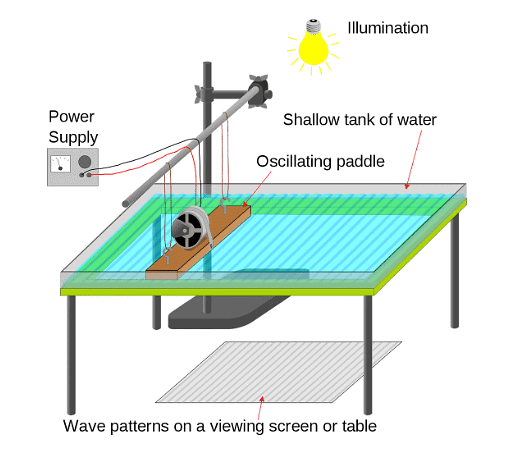
Investigating Waves
- Reflection can be demonstrated when waves encounter a flat surface, such as a wall or mirror.
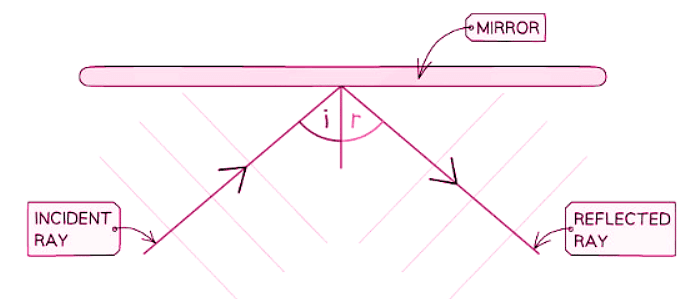
Investigating Refraction
- Refraction can be demonstrated by placing a glass block in the tank.
- The glass block should be submerged beneath the water surface, covering a section of the tank floor.
- This creates a shallower depth of water where the glass block is positioned.
- As wave speed is influenced by depth, the ripples slow down when passing over the block.
- This setup effectively models refraction, showcasing how waves decelerate when transitioning from deep water to shallow water.
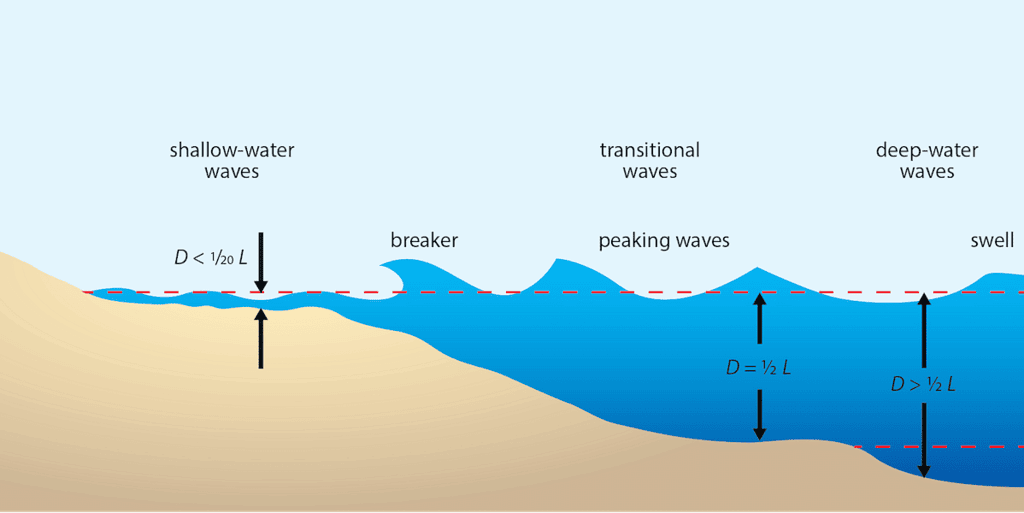 When water waves travel from deep areas to shallow areas they slow down
When water waves travel from deep areas to shallow areas they slow down
Investigating Diffraction
- Diffraction can be demonstrated in a ripple tank by introducing small barriers and obstacles.
- When water waves encounter two obstacles with a gap between them, the waves are observed to diverge or spread out.
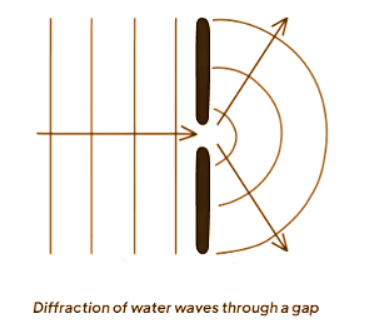
- As water waves reach the edge of an obstacle, they spread out in the following manner:
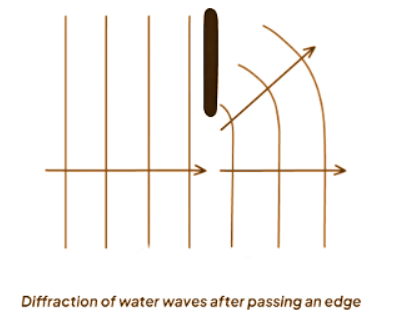
- The degree of diffraction is determined by the relationship between the gap size and the wavelength of the water wave.
- The diagram demonstrates how wavelengths change with frequency in a ripple tank.
- A higher motor frequency corresponds to shorter wavelengths.
- Conversely, a lower motor frequency results in longer wavelengths.
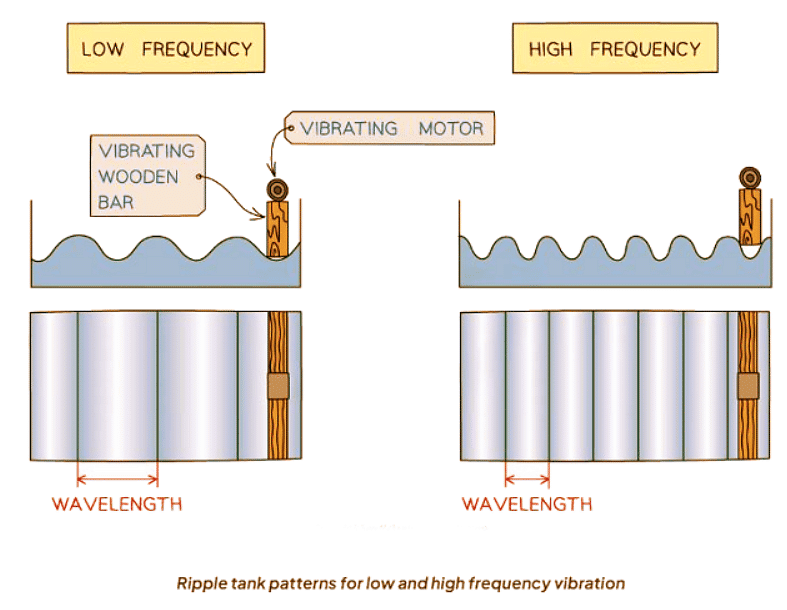
Question for Ripple TankTry yourself: Which property of water waves can be demonstrated by placing a glass block in a ripple tank?View Solution
The document Ripple Tank | Physics for GCSE/IGCSE - Class 10 is a part of the Class 10 Course Physics for GCSE/IGCSE.
All you need of Class 10 at this link: Class 10
|
126 videos|194 docs|35 tests
|
FAQs on Ripple Tank - Physics for GCSE/IGCSE - Class 10
| 1. What is a ripple tank used for in the study of waves? |  |
Ans. A ripple tank is used to investigate the behavior of waves, such as reflection, refraction, and diffraction, by creating ripples on the surface of water.
| 2. How does wave refraction occur in a ripple tank? |  |
Ans. Wave refraction occurs in a ripple tank when a wave passes from one medium to another, causing its speed to change and the wavefronts to bend.
| 3. How are frequency and wavelength related in the context of motors in a ripple tank? |  |
Ans. In the context of motors in a ripple tank, the frequency of the motor's vibrations determines the wavelength of the waves produced in the tank.
| 4. What are some common applications of ripple tanks in physics experiments? |  |
Ans. Ripple tanks are commonly used in physics experiments to study wave phenomena, such as interference, standing waves, and the Doppler effect.
| 5. Can you explain the concept of diffraction using a ripple tank? |  |
Ans. Diffraction in a ripple tank refers to the bending of waves around obstacles or through narrow openings, demonstrating the wave nature of light and sound.
Related Searches















